After blinking my eyes to clear the morning out of them, I realized the young lady was my father's caregiver who had been assigned to stay with him during the night hours. Once I saw my dad was peacefully sleeping, I introduced myself to the young lady and, nodding in the direction of her book, asked her what she was reading? I shared the story of how one of my students honored me with the name "The Book Dealer," due to my ability to entice young adults to read. Her eyes lit up as we talked about our all-time favorite reads. This was a welcomed respite from the stress of my father's illness, as the conversation was about my all-time favorite topic: Young Adult (YA) Literature (lit).
Our common interest instantly bonded us, and similar to life-long friends, we sat close to each other and whispered our secrets about what reading means to us. I relayed the story of how just that week I was certain my dad's neurosurgeon was the right surgeon due to the book I was reading. In The Lilac Girls by Martha Hall Kelly (a book I should add was "dealt" to me by my friend, Dr. Patricia Wacholz) a sentence caught my eye. "A doctor without love is just a mechanic." I thought about my father's doctor and the inordinate amount of time spent with my family and the compassion he demonstrated, and I knew he was the one we would entrust to operate on my dad. As I relayed this story to Melodee, the nursing student, she wrote down the title of the book and asked for other recommendations. We talked about all we had learned from reading, and she, too, believes in the important life lessons learned through YA lit. She shared with me how YA lit was the 'rock' that got her through her parents' grueling divorce, and I nodded in agreement, as Chris Crutcher's Period 8 was the book that opened my eyes to another view on the topic of divorce and relationships.
This kindred conversation reminded me of the thousands of "people" I have "met" through YA lit and the many lessons I have learned through these characters. I kept thinking about the all-important "P" word that I mention in almost every one of my lectures: PURPOSE. In both reading and life, PURPOSE is critical in terms of successful navigation of barriers. Purpose helps us stay focused. Looking for that purpose in the form of lessons learned, YA lit can be the best medicine for what ails us, as it feels good to know there are others (albeit fictional characters) who face adversity and survive it.
My initial list of recommended reads was at first miles long, so I tried to limit it by some of the most important lessons learned within my recent reads. This is by no means a complete list, as what I have learned through reading YA lit outweighs knowledge gained through hard experience.
Although there are many lessons Pax teaches that can be applied to our lives, the one that resonated most with me was the scene between Peter and a war veteran named Vola. As Peter journeys to find Pax, he stumbles upon a safe shelter at Vola's house. The time he spends with her is mutually benefiting, as Peter learns as much from her as she does form him. Peter tells her about the Rising Phoenix, a story told to him by his deceased mother. His story reminds us that no matter how difficult life gets, we can rise up from the ashes.
I have witnessed first hand the impact this book has on people, as I read parts of it to my college students, and there wasn't a dry eye in the room!
Lesson learned: Life is not easy, but we can always pick ourselves up, dust ourselves off, and find a newer, stronger version of ourselves!
In this heartwarming tale, the main character, Heidi, is the child of a mentally disabled woman. Her mother possesses a vocabulary limited to 23 words, so trying to find answers to her life proves to be a challenge. A new phrase spoken by her mother and an old roll of film leads Heidi across country in search of the truth. What she finds is not what was expected, as Heidi discovers sometimes family is not necessarily comprised of only blood relatives.
Lesson(s) learned: Home is where the heart is! Can anyone guess who learned more from this book (the teen or the mom)? Yes, I did! Although Elena received the message of the book loud and clear, I think I learned more, as I now better realize the pain of not knowing your childhood history. I have taught countless teens who did not know their parents, and this made me understand their feelings, as well as giving me a new appreciation of what my own daughter feels.
Lesson(s) learned: Life's challenges are much easier when friends are there to help. Also, dealing with life's challenges often supports one in finding purpose, or, as Raymie learns, just life the famous nurse Florence Nightingale, we need to help others who have "...fallen on the battlefield of life." No truer words have ever been spoken. If we all helped one another life the three characters in this book, the world would not have so much turmoil.
Although my first three choices will be loved by all ages, as the Book Dealer who has always dealt to an audience of high school students, I would be remiss if I didn't select YA books that are geared towards older readers. With so much buzz around Jay Asher's book 13 Reasons Why, I have had various talks with adults and young people alike about the impact of this book on their thinking regarding the crisis in our schools related to bullying. Asher's book generated a lot of talk in my high school classroom back in 2009. Also, it spurred debate among the English faculty, as many of the teachers felt the topic of suicide should be off limits for teachers of high schoolers. What I am finding in 2017 is a shift in thinking, as just today I was part of a discussion with several parents who claimed that the Netflix series of Asher's book opened up discussions with their teens about what constitutes bullying and whose responsibility it is to make sure it does not happen. The talk of bystanders actually being a guilty party to bullying, as well as what to do when a friend or peer is depressed has been "trending" on Facebook and other social media outlets. One of my friends stated, "My fear is for those [students] who don't or won't discuss these topics with their parents or adults." Other comments suggest this books should be a core read for all high school students.
As promised, I want to share some new releases from the past year, and there was one book I have read this year related to depression/suicide that has, just like 13 Reasons Why, haunted me long after finishing it:
Lesson(s) learned: To prevent any "spoilers," suffice it to say, this book does not end on a happy note, but what is readily apparent is depression is not a one-size-fits-all disease. From the first time in my 50-year-life, an author was able to capture this in a way that I understood completely. Just as we are all individuals, depression is different for each person. This is a lesson learned that I feel could truly save lives. Too many times we THINK we understand how others feel when depressed, when in reality, we don't. Sometimes we need roe help form professionals in the field than we are able to give each other.
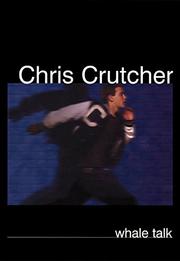
From the adopted bi-racial TJ (Whale Talk) to the tries-to-always-be-truthful Paulie (Period 8), each one of Crutcher's characters is real. Crutcher gives an honest view (which is sadly often not appreciated by parents and whose books are often listed on the banned book list), Crutcher blazed the trail for others to create characters that are not only "real" but characters who make our youngsters feel "normal." Additionally, these characters create empathy in our youth, which, in my mind, is probably the most important reason why teachers should allow choice in YA lit.
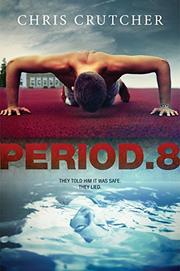
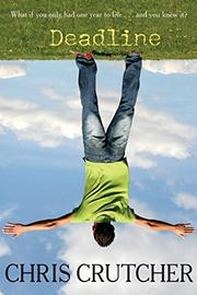
- Lesson(s) learned: Whale Talk opened my eyes to those students in my class who were seen as outcasts to others. I always loved each one of my students, but I never stopped to think about how those students felt in relation to their peers. This book holds a special place in my heart not only because it was my first glimpse into YA lit., but because it made me see into the life of such characters as TJ and young Heidi, the little girl in the book who tries to scrub the color form her skin with a bristle brush in order that her daddy would love her. The relationships built in this book are more important today than they were when Crutcher wrote it, as it delves into the values of humanity, and how we are all people, no matter what our background, and we should all be treated with respect.
What I hope readers will gain from this blog is all that was learned from just five (well, five plus) books. What is important is to TALK BOOKS and share the joy of reading with others. Sometimes it is in the oddest places (yes, even in a hospital) that we can learn about new books and make new friends. Our prior experiences and differences in our backgrounds allow us to share various viewpoints on books and what each book has to offer in terms of life lessons. These important discussions not only make us think and teach us lessons, they form connections with others. This connection creates a wonderful community of YA Literature where people feel safe and excited enough to "deal" their favorite reads!
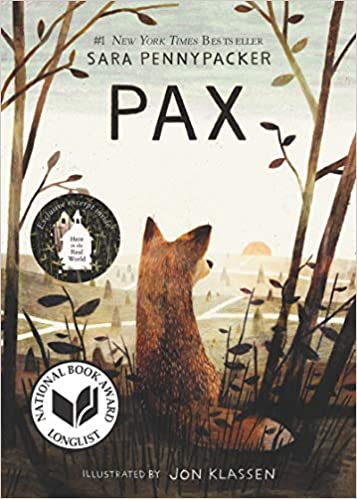
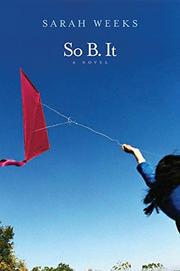
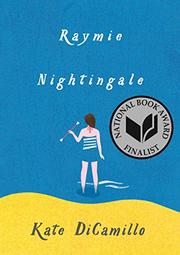
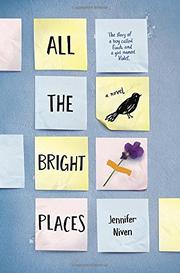

 RSS Feed
RSS Feed